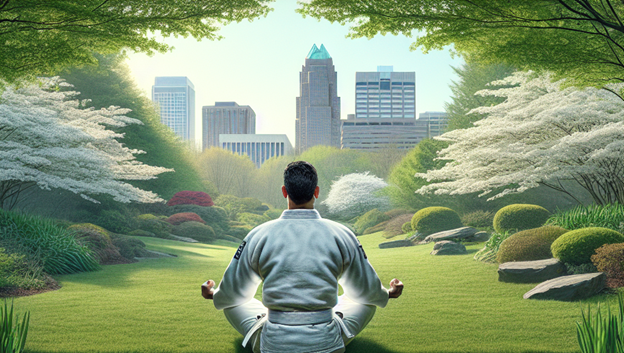
Post-Traumatic Stress Disorder (PTSD) is a complex and often debilitating condition that can arise after experiencing or witnessing a traumatic event. Its symptoms are numerous and can include flashbacks, nightmares, severe anxiety, and emotional numbness. While traditional therapies such as counseling and medication can be effective, many individuals are discovering the transformative power of martial arts in their journey toward healing and recovery. Below you will find several examples of how martial arts can provide a therapeutic outlet for individuals grappling with PTSD.
One of the hallmark symptoms of PTSD is a pervasive sense of powerlessness and vulnerability. Martial arts training offers a structured environment where individuals can gradually rebuild their self-esteem and regain a sense of control over their bodies and minds. As practitioners progress through their training, mastering new techniques and overcoming physical challenges, they experience a tangible boost in confidence. This newfound self-assurance can extend beyond the mat, positively impacting various aspects of their daily lives.
Central to many martial arts disciplines is the concept of mindfulness – the practice of being fully present in the moment without judgment. For individuals with PTSD, who may struggle with intrusive thoughts and overwhelming emotions, cultivating mindfulness can be incredibly therapeutic. Through focused breathing exercises, meditation, and the repetitive practice of martial arts forms, practitioners learn to quiet their minds, regulate their emotions, and develop a greater sense of inner peace. These mindfulness techniques can be invaluable tools for managing PTSD symptoms both during training and in everyday life.
Small group martial arts training fosters trust and camaraderie among training partners. For individuals struggling with PTSD, who may feel isolated or disconnected from others, this sense of belonging can be profoundly healing. In a supportive and non-judgmental environment, practitioners can share their experiences, lean on one another for support, and draw strength from the collective journey toward personal growth and healing. The bonds forged on the training mat can provide a vital source of social support and understanding for individuals navigating the challenges of PTSD.
Engaging in regular physical activity is known to have numerous benefits for mental health, including reducing symptoms of anxiety and depression. Martial arts offer a dynamic and engaging form of exercise that not only improves physical fitness but also equips individuals with practical self-defense skills. For individuals with PTSD, who may struggle with hypervigilance and a heightened sense of vulnerability, learning self-defense techniques can instill a greater sense of safety and empowerment. Knowing that they have the ability to protect themselves if, needed, can be incredibly empowering and can help alleviate feelings of helplessness and fear.
While there is no one-size-fits-all approach to treating PTSD, the practice of martial arts offers a unique and holistic approach to healing that addresses the physical, emotional, and psychological aspects of the condition. By building self-esteem, cultivating mindfulness, fostering camaraderie, and empowering individuals with practical self-defense skills, martial arts can play a valuable role in helping individuals reclaim their lives and move forward on the path to recovery. Whether it's through the discipline of Hapkido, the fluidity of Tai Chi, or the intensity of Brazilian Jiu-Jitsu, the journey of martial arts can be a transformative one for those seeking healing from the wounds of trauma.
by Johnny Cameron
